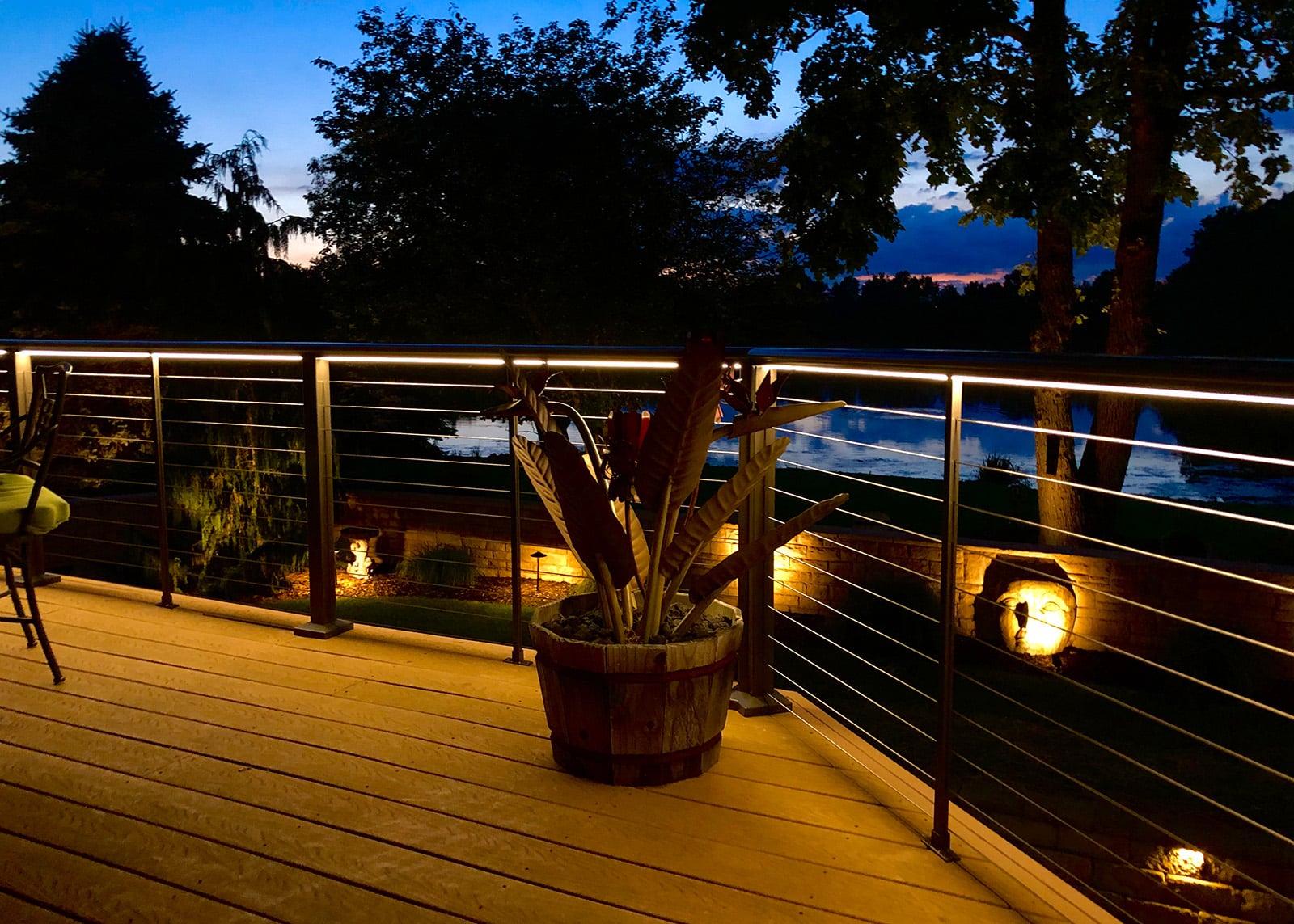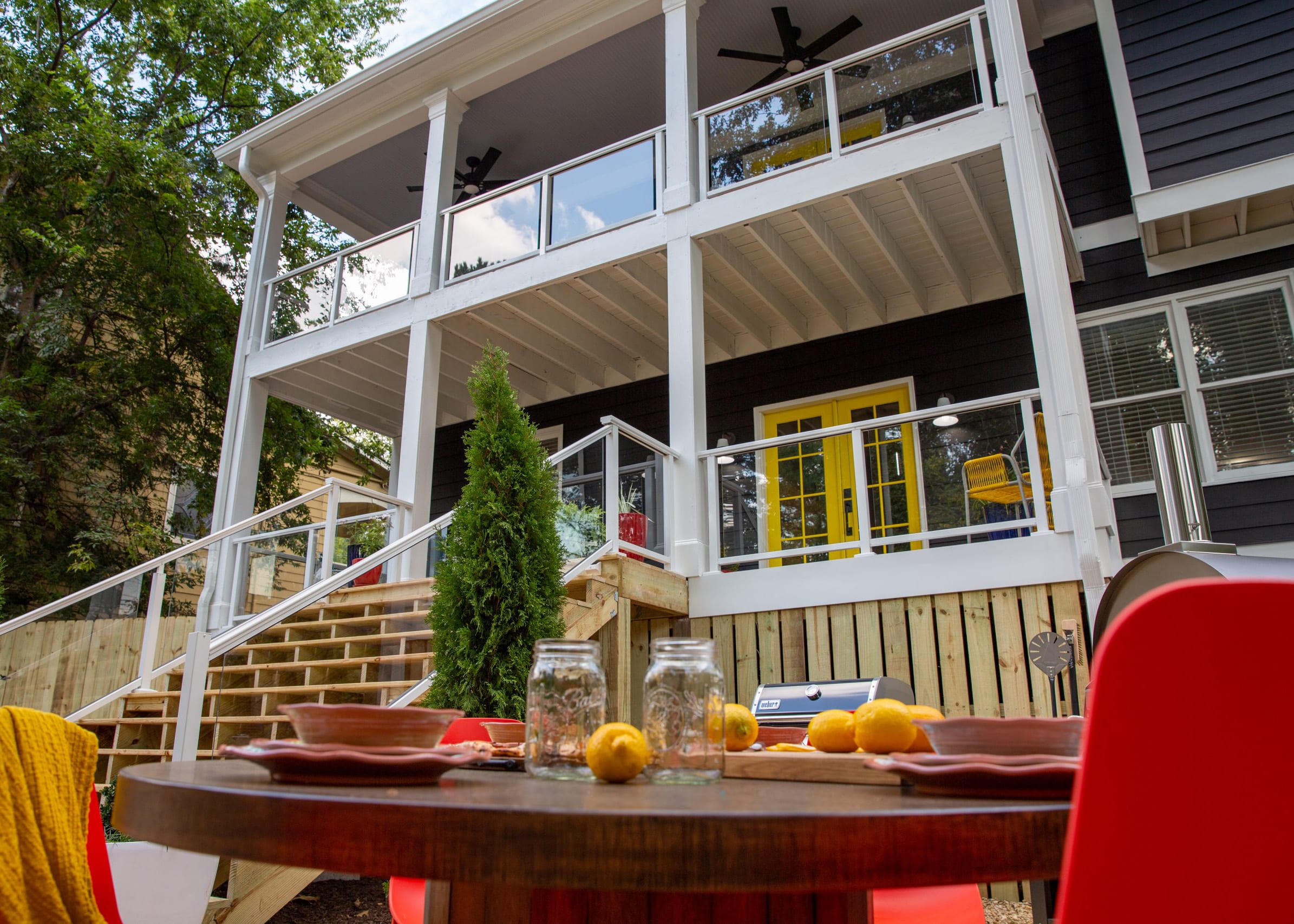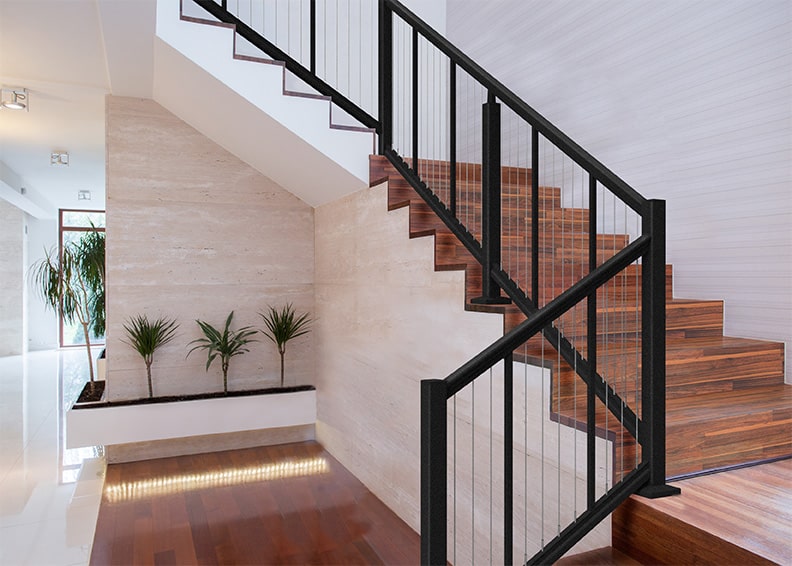Building a strong frame for CableRail
Feeney’s here to help you make sure your railing can withstand the tensioning load of CableRail infill.
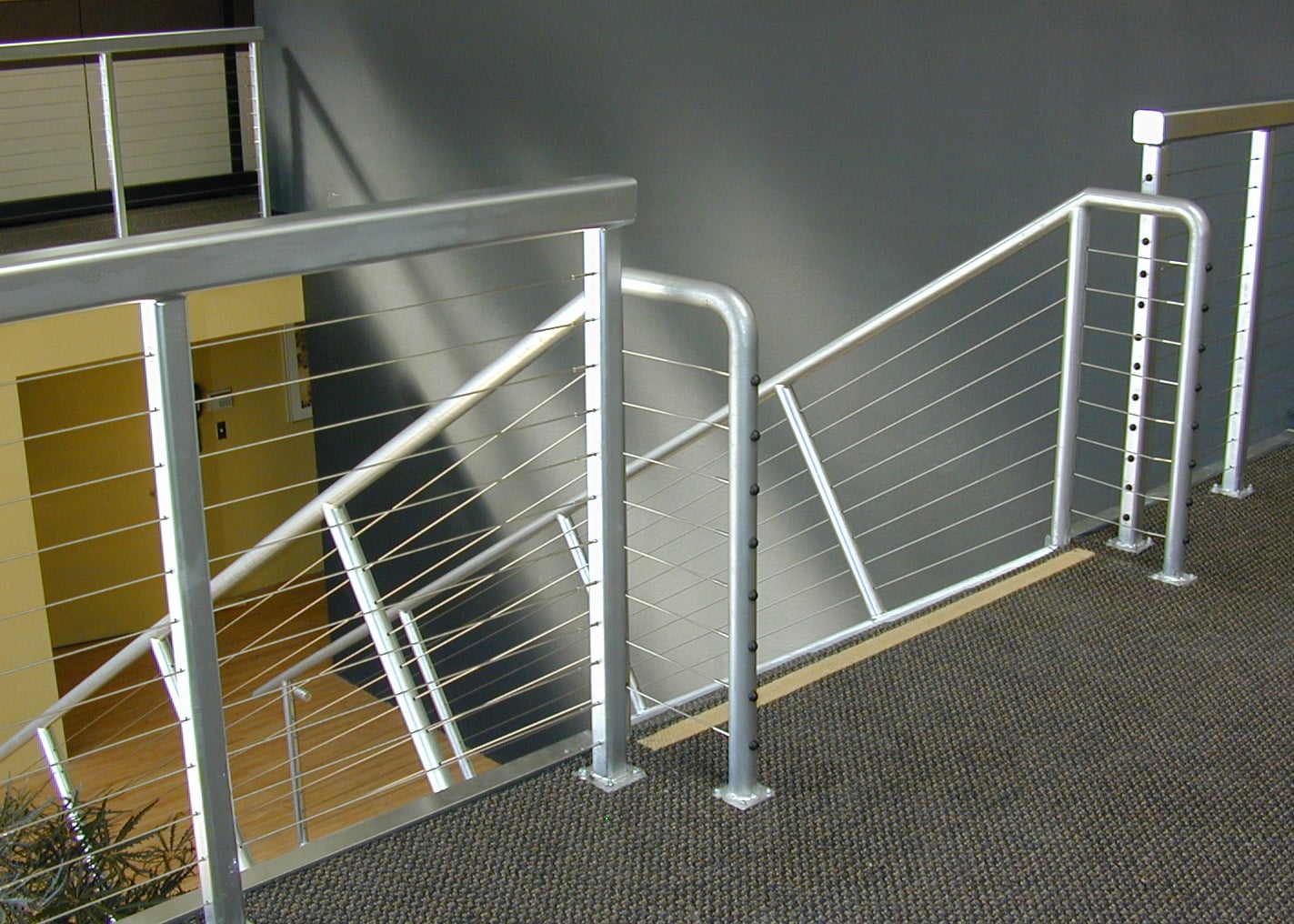
Beautiful for the long haul
Feeney railing systems are made from high strength 6000-series aluminum extrusions with AAMA 2604 powder-coated finishes that can be cut and assembled on site using pre-engineered components that snap and screw together.
Infinitely customizable, easy to install, beautiful and durable – DesignRail® makes your railing projects a snap!
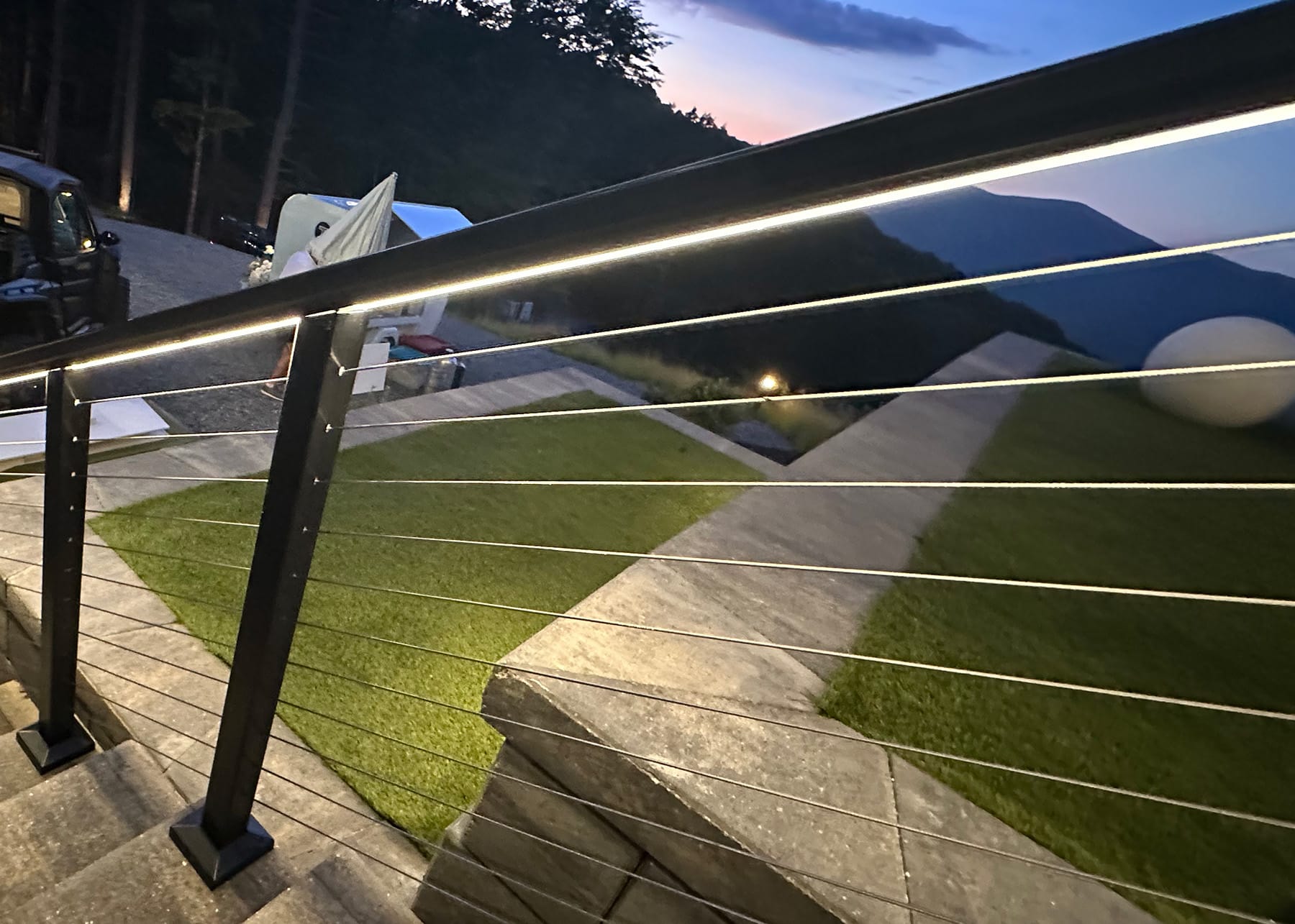
Hablas Español?
Si tu necessitas informacion en español, Feeney esta aqui y pueda ayudarle.
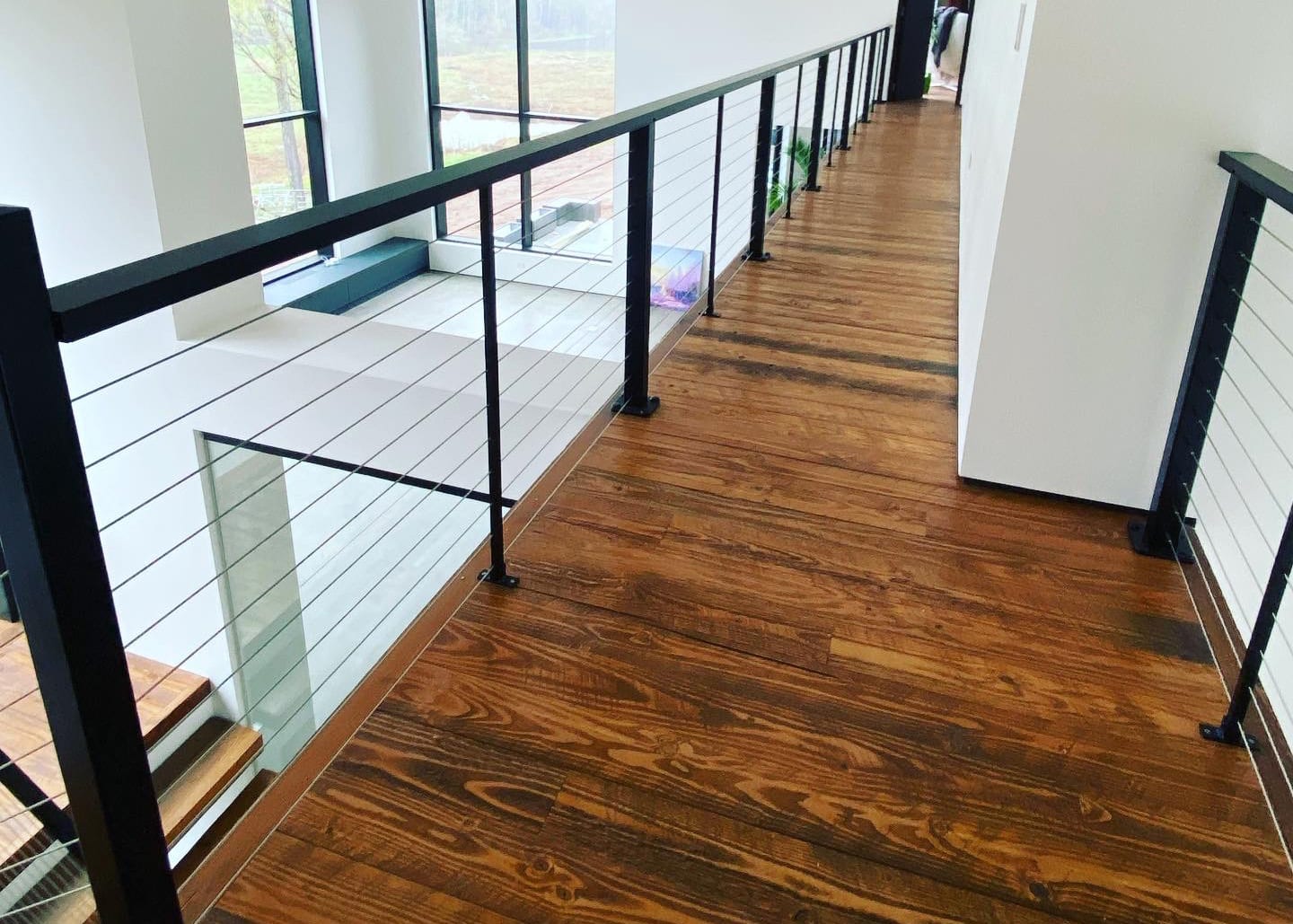
Preferred Installer Program
Boost your reputation by association with Feeney CableRail, the leading cable railing brand. Get exclusive access to marketing tools, gear, and more!
Program benefits include a two year labor warranty, a premiere listing on our contractor locator, and a dedicated toll free customer service line.

FAQs
-
How far apart can I space the cables?
The International Building Code states that a 4-inch sphere cannot pass through any opening in your railing and since cable is non-rigid, the flex of the cable must be taken into account. We recommend spacing the cables no more than 3 inches apart to allow for possible cable deflection and to meet the intent of the code. Before starting a CableRail project, installers should always check with their local building department to see if there are any special local requirements for using and installing cable railings.
-
How far apart can I space my posts?
We recommend having a post or vertical member (intermediate picket) at least every 3 feet. With the posts/verticals spaced 3 feet apart and the cables spaced 3 inches apart, you should be able to tension the cables so that they won’t open past the 4-inch sphere code requirement when a reasonable force is applied.
-
What’s the longest cable run I can have?
When using our standard CableRail Kits, we recommend that straight runs of cable (no corners or bends) should not exceed 70 feet. Runs with corner bends (using double corner posts) should not exceed 40 feet and should not have more than two corners per run. Maximum run lengths may be less if using CableRail Conceal Kits or other Quick-Connect® or swage-type fittings. Give us a call to confirm the maximum run lengths for your specific project.
-
Where would I need to use beveled washers?
When using CableRail Kits on stair railings, you will often need to attach the cable end fittings through an angled hole in the stair end posts. This will cause the fittings to protrude from the post at an angle. The beveled washers are then used to compensate for that angle and provide a flat bearing surface for the end fittings.
Blogs That Inspire
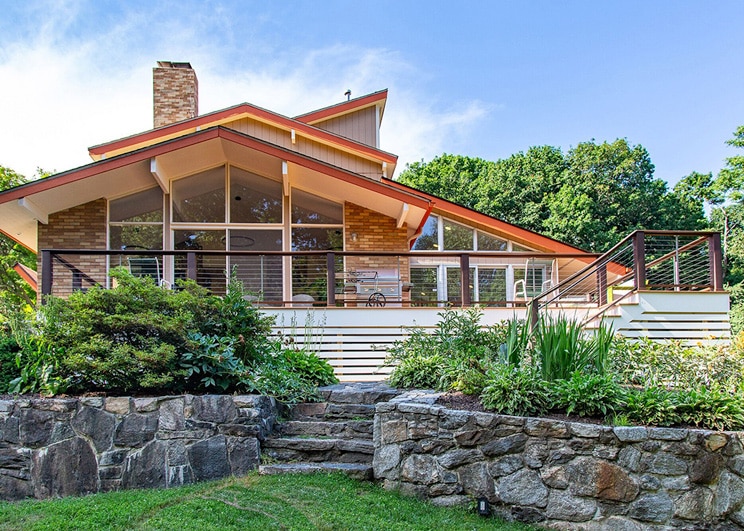
3 Ways to Outsmart Deck Design Challenges
Updated Tips for Creating Functional, Beautiful Outdoor Spaces Today’s homeowners expect more from their outdoor living spaces. From multitasking layouts that blend work and play to eco-conscious materials with low-maintenance finishes, decks are now true extensions of the home. But as demand for personalized and purposeful outdoor areas grow, so do the design challenges. The following are three smart ways to outthink the most common hurdles in 2025, for building a referral-worthy deck and getting the edge on your competitors. Challenge 1:…
Send in Your Photos to Win
Top prize in our annual Photo Contest is $1,000 – submit photos or videos of your projects using Feeney® products to show us you have what it takes. Send in as many photos you can: close ups, wide shots, photos with pets – you get the picture!
